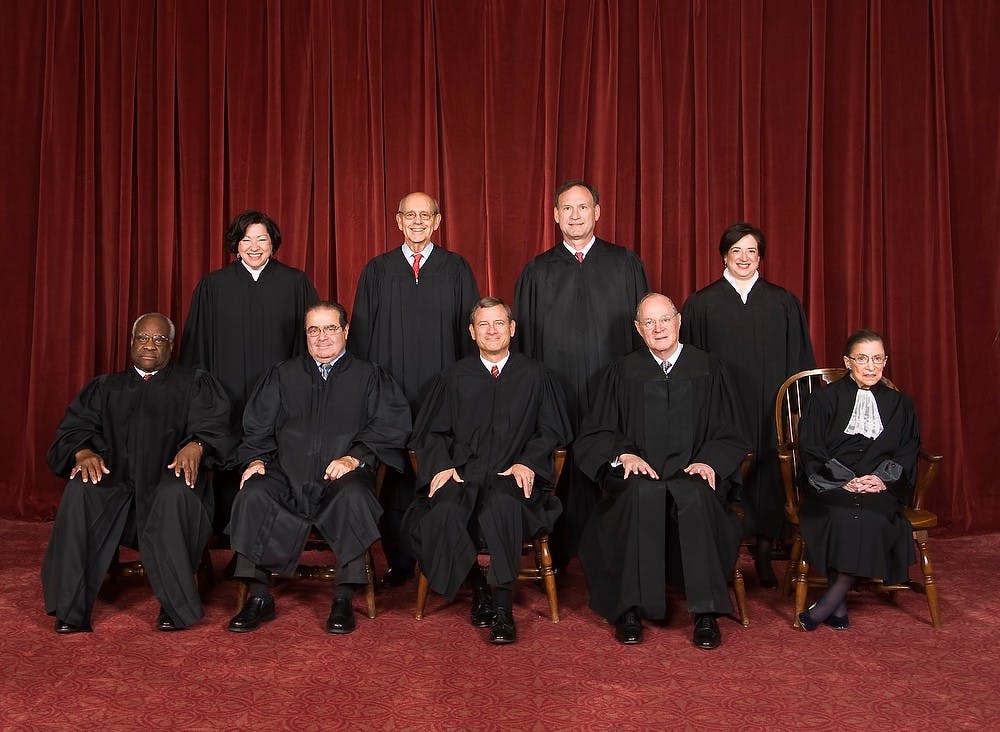WASHINGTON — U.S. Supreme Court justices weighed whether Michigan’s affirmative action ban places an unfair burden on minorities Tuesday during oral arguments for Schuette v. Coalition to Defend Affirmative Action.
Shanta Driver and Mark Rosenbaum, the attorneys asking for the court to overrule the state’s constitutional ban on affirmative action, argued the 2006 voter-approved ban constitutes special burdens for underrepresented minorities seeking admittance to public universities.
To change university admissions policies, citizens generally can appeal directly to the university. Because of the statewide affirmative action ban, those asking to have race included as a factor must go through the courts — which defendants argue creates an unfair burden.
Driver and Rosenbaum questioned whether the ban was an unconstitutional act of political restructuring. They used the comparison of alumni associations, which can advance their interests through the university instead of the courts.
Highlighting pro-affirmative action arguments, Justice Sonja Sotomayor said that while the language might seem race neutral, it has the potential to “bring segregation back to Michigan.”
Other more conservative justices sought to shoot holes in that point. Justice Anthony Kennedy, who is widely seen as a swing vote in the case, questioned why universities should have the power to create such policies, but voters do not.
Justice Antonin Scalia, one of the most conservative members of the court, said race should not factor at all in the admissions process.
Michigan Solicitor General John Bursch, who represented the state opposing the ban, said using race as even one factor among many is the same type of discrimination that the Equal Protection Clause is supposed to prevent.
A decision on whether to uphold or strike down an earlier ruling from the U.S. Sixth Circuit Court of Appeals overruling the state’s affirmative action ban likely won’t be made until spring 2014.
Keep following The State News for more updates from Washington on this story.
Support student media!
Please consider donating to The State News and help fund the future of journalism.
Discussion
Share and discuss “Supreme court hears arguments on affirmative action ban” on social media.



